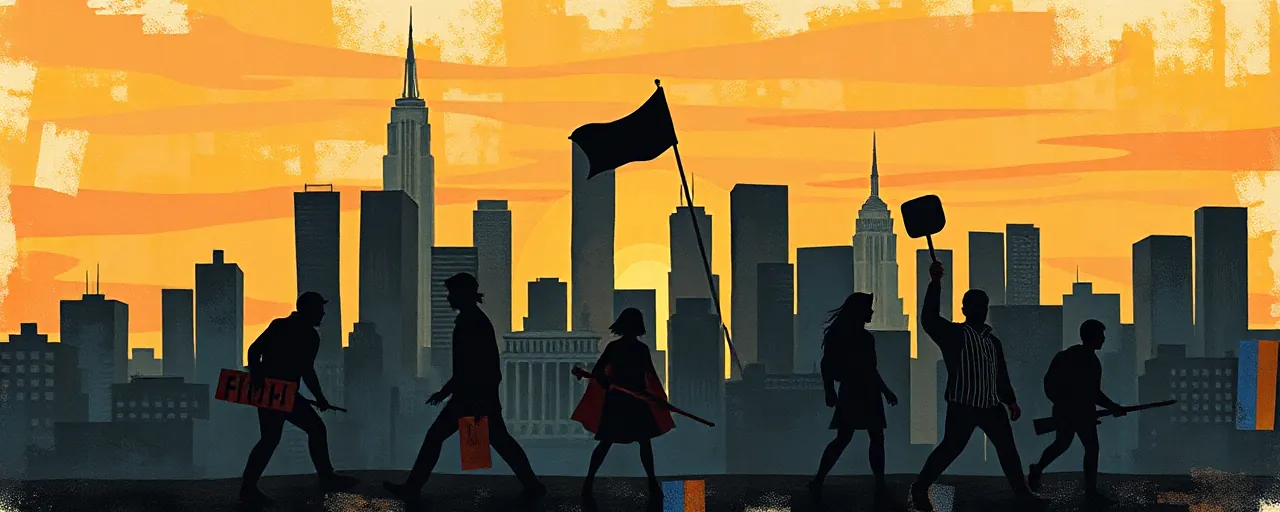A Reckoning in West Texas
In a modest university auditorium in San Angelo, Texas, a quiet revolution unfolded this week. Over 25 law enforcement officers from 10 regional departments gathered, their eyes fixed on screens displaying body camera footage of real encounters gone wrong. Hosted by Angelo State University’s Police Department, the FBI Dallas Field Office delivered a stark message: civil rights violations are not abstract legal theories, they’re failures that shatter lives and erode trust. This wasn’t just another training session. It was a frontline defense against a tide of abuses threatening communities nationwide.
The urgency of this moment cannot be overstated. With hate crimes spiking and high-profile cases of police misconduct dominating headlines, the need for accountability in law enforcement has never been clearer. The FBI’s decision to bring this training to San Angelo reflects a broader truth: even in small towns, the stakes are high. Officers here aren’t just learning statutes; they’re being armed with tools to confront a legacy of systemic failures that have too often left marginalized groups vulnerable.
This isn’t about coddling criminals or undermining police. It’s about ensuring those entrusted with power wield it justly. The footage they reviewed, raw and unfiltered, showed split-second decisions that spiraled into violations, moments where training could have changed everything. For a nation still reeling from George Floyd’s murder and the torture of two Black men by Mississippi officers, San Angelo’s session is a flicker of hope, a chance to rewrite the script.
The Evidence Speaks Louder Than Words
Body camera footage, a cornerstone of the San Angelo training, isn’t just a gimmick. It’s a game-changer. In Miami-Dade County, these devices slashed use-of-force incidents by 19% and civil lawsuits by a staggering 74%. That’s not a fluke; it’s proof that transparency saves lives and taxpayer dollars. When officers know their actions are recorded, they hesitate before crossing lines. When footage is dissected in sessions like San Angelo’s, it becomes a mirror reflecting what’s broken and how to fix it.
The FBI’s role here is pivotal. As the lead agency investigating civil rights violations, it’s stepping up at a time when trust in local policing is fraying. In 2022 alone, over 13,000 hate crime incidents scarred the nation, half fueled by racial or ethnic bias. The Buffalo supermarket massacre, where 10 Black lives were snuffed out, wasn’t an anomaly; it was a warning. Add to that the Mississippi case, where six officers tortured Black men with impunity until federal intervention, and the pattern emerges: without oversight, power festers into cruelty.
Critics, often from corners nostalgic for unchecked authority, argue this focus on training and cameras coddles a soft-on-crime agenda. They’re wrong. Accountability isn’t weakness; it’s strength. The Anne Arundel County officer indicted for manslaughter after a rogue high-speed chase didn’t need less oversight, he needed more. San Angelo’s training, with its case studies and hard truths, proves that education, not evasion, is the path to safer streets.
History backs this up. Since the 1960s, when the FBI tackled Klan violence ignored by local sheriffs, federal intervention has been a lifeline for justice. The Civil Rights Act of 1964 turned those efforts into law, yet abuses persist. Today’s training builds on decades of lessons, from Oakland’s use of footage to refine officer communication to Minneapolis’ consent decree forcing real reform. San Angelo isn’t reinventing the wheel; it’s rolling it forward.
Still, the challenges loom large. Body cameras cost money, and data storage strains budgets. Privacy concerns nag at civil libertarians, and criminals can exploit tech vulnerabilities. But these are hurdles, not dealbreakers. The alternative, a return to opaque policing, is unthinkable when footage has exposed falsified reports in Baltimore and brutality in Ferguson. San Angelo’s officers aren’t just watching videos; they’re learning to protect rights in real time.
A Call to Action, Not Complacency
San Angelo’s training isn’t a victory lap; it’s a starting gun. With hate crimes and color-of-law abuses still climbing, one session won’t heal the wounds. The FBI’s elevated focus on these threats since 2021 is commendable, but it’s not enough. Communities deserve more than periodic workshops; they need a seismic shift in how power is wielded. Every officer who walked out of that auditorium carries a responsibility to turn lessons into action, to see the humanity in every encounter.
This is bigger than San Angelo. It’s a blueprint for a nation at a crossroads. The tools are here: body cameras, federal oversight, training rooted in reality. What’s left is the will to use them. For every life spared excessive force, every hate crime prevented, every trust rebuilt, sessions like this light the way. The question isn’t whether we can afford to prioritize civil rights; it’s whether we can afford not to.
